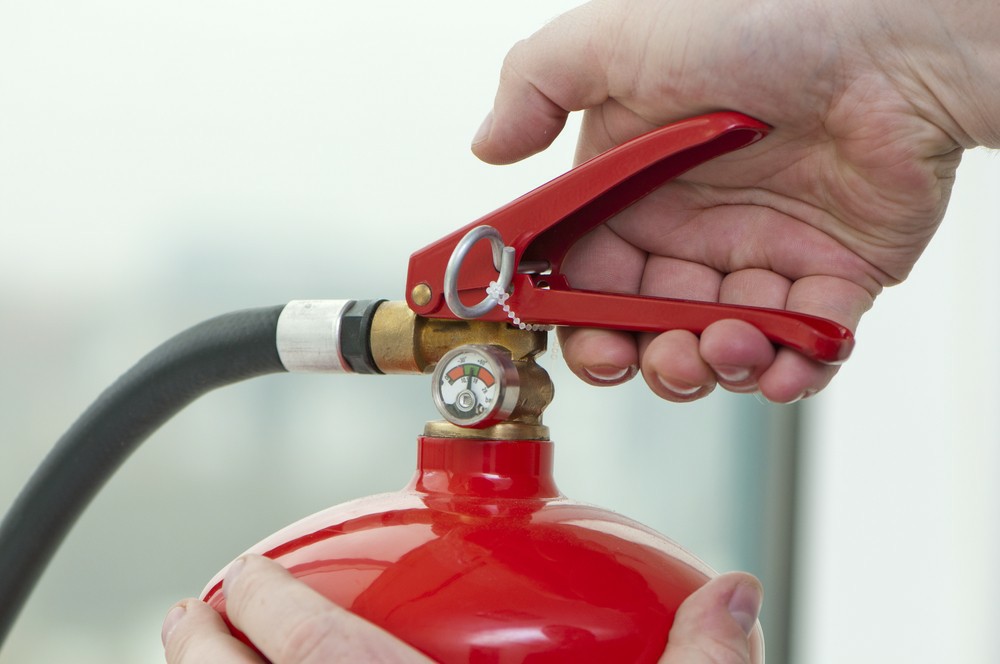Essential Responsibilities of Fire Wardens and Fire Marshals: Training, Compliance, and Safety Enhancement
In every workplace, safety is paramount, and when it comes to fire safety, the roles of Fire Wardens and Fire Marshals are critical. These trained individuals ensure that workplaces remain compliant with fire safety regulations and that employees are prepared for any emergencies. This guide outlines the key responsibilities of Fire Wardens and Fire Marshals, the importance of training and certification, and how businesses can enhance safety in cities like Dublin, Cork, Galway, Limerick, and Waterford.
Understanding the Roles
Before delving into responsibilities, let's clarify the difference between Fire Wardens and Fire Marshals:
- Fire Wardens: Focus on fire prevention and preparedness within a specific area. They are responsible for ensuring that safety practices are followed and that all employees know their roles during an emergency.
- Fire Marshals: Have broader responsibilities, often overseeing multiple Fire Wardens and ensuring overall compliance with fire safety legislation and regulations. They typically lead evacuation efforts and coordinate emergency response activities.
Key Responsibilities of Fire Wardens
Every Fire Warden should be aware of their critical duties. These include:
- Conducting Fire Risk Assessments: Regularly assess the workplace to identify potential fire hazards, ensuring compliance with the Fire Services Act.
- Implementing Fire Safety Protocols: Ensure that all fire safety measures are in place, including fire alarms, sprinklers, and safe exits.
- Employee Training: Educate staff on fire safety practices and the procedures to follow in case of an emergency.
- Regular Drills: Organize and lead fire drills to ensure that all employees understand evacuation protocols and can respond effectively during a real emergency.
- Maintaining Equipment: Regularly check fire safety equipment such as extinguishers and alarms to ensure they are functioning correctly.
Key Responsibilities of Fire Marshals
Fire Marshals carry additional tasks, including:
- Overseeing Fire Wardens: Monitor the activities and effectiveness of Fire Wardens to ensure compliance with fire safety protocols.
- Coordination During Emergencies: Lead the response during an emergency, ensuring that evacuations go smoothly and promptly.
- Documentation: Maintain records of fire drills, incidents, and safety equipment checks. These documents are crucial for audits and assessments.
- Continuous Training: Ensure that both they and their team stay updated on fire safety regulations and practices.
Importance of Training and Certification
Obtaining a Fire Warden Certificate or Fire Marshal Certification is crucial for compliance and operational safety:
- Legal Compliance: Certification ensures that individuals are recognized as competent under workplace safety regulations, minimizing legal liabilities.
- Enhanced Safety Skills: Training emphasizes essential fire safety knowledge and skills, reducing the risk of incidents at the workplace.
- Improved Emergency Preparedness: Regular training helps ensure that all personnel know their roles in case of a fire emergency, leading to smoother evacuations and minimized chaos.
Fire Safety Protocols and Risk Assessment
Implementing fire safety protocols and conducting regular risk assessments are vital components of a fire safety strategy:
- Regular Assessments: Fire Wardens should perform assessments at least annually or when there are significant changes in the workplace.
- Employee Awareness: All staff should be educated about fire hazards specific to their work areas, including proper storage of flammable materials.
- Fire Safety Equipment Training: Employees must be trained on how to use fire extinguishers and other emergency equipment correctly.
Emergency Fire Procedures
In the event of a fire, quick action is essential. Here are key steps to follow:
- Immediate Evacuation: Fire Wardens should ensure personnel evacuate the building promptly, using designated exits.
- Roll Call: Once evacuated, conduct a roll call to ensure everyone is accounted for.
- Do Not Re-enter: Instruct employees not to re-enter the building until given the all-clear by emergency services.
Legal Obligations of Fire Wardens and Fire Marshals in Ireland
Irish law mandates that all workplaces must have a Fire Safety Plan. Fire Wardens and Fire Marshals must ensure compliance with:
- Fire Safety (General Provisions) Regulations: Compliance ensures that workplaces follow required safety and preventive measures.
- Safety Statement: Workplaces must create a safety statement that outlines their procedures for handling fire risks.
The Impact of Training on Workplace Safety
Investing in Fire Warden Training Dublin, Fire Warden Training Ireland, and other courses significantly impacts workplace safety:
- Reduction of Fire Risks: Properly trained personnel can identify and mitigate risks effectively.
- Enhanced Employee Confidence: Employees are more confident in their safety when they understand emergency procedures.
Conclusion: Your Next Steps Towards Fire Safety
Every organization should prioritize fire safety by training Fire Wardens and Fire Marshals effectively. By enrolling in Certified Fire Marshal Training or Fire Warden Course Dublin, businesses in Dublin, Cork, Galway, Limerick, Waterford, and beyond can significantly enhance their safety protocols. Don't wait for an emergency to assess your preparedness—take proactive steps now!
For more information on courses available and to strengthen your organization's fire safety plans, visit Ireland Safety Training or contact us at [email protected].



 349,500 Offered Certificates
349,500 Offered Certificates
 24/7 Online Training
24/7 Online Training
 Money Back Guarantee
Money Back Guarantee
 Fully Accredited Courses
Fully Accredited Courses
